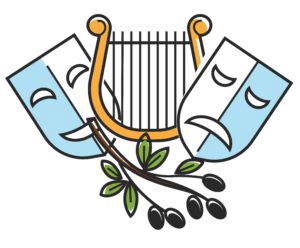The ancient music is wrapped with many amazing facts. However, the fascinating thoughts about it keep on changing with time. A recent report on the BBC says that scientists have discovered the earliest musical instrument, and it belongs to the era between 42000 to 43000 BC. The instrument appeared more like a flute, and it was made up of mammoth tusks. You can find the names of many such instruments in history.
Studies reveal that musical instruments were discovered several years ago, and even in the early stages, mankind has used many of them. There are plenty of interesting facts to know about the music in antiquity. It has several infernal properties, and they evolved with time. For some people, music has always been a matter of harmony, whereas, for many others, it is just noise. Many people have considered it a relaxing therapy, but others follow music just for fun. The importance and definition of music for people also keep on changing with time. The article below includes some important aspects of music; you should check these details to update your knowledge base.
Infernal Properties of Ancient Music
Some old writings show marks of music from ancient times, around 3000 BCs, especially in many areas of Greek. You may even find many fragments of music notations that emerged from different corners of the world and are a part of present-day performances as well. Many surviving ceramics, frescos, and sculptures provide some insights to the dancers and musicians of the ancient times. You can see them playing many unique instruments.
The historical evidence obtained from Greek says that music was a dominant part of the culture in Europe. People enjoyed many instrumental innovations of Egyptians and Mesopotamians. The list included percussion, wind, and many string instruments as well. The lyre was the most famous and valuable instrument throughout Greece.
Some studies reveal that the Greek God Apollo was a great believer in playing the lyre, and this is the main reason why this instrument gained huge popularity around the world. Other than this, people in ancient Greece use aulos as another popular musical instrument. It appears more like a double reed instrument and is believed to have more penetrating and powerful timbre.

The interaction and interplay between poetry and music are of great importance for the people living in ancient Greek. History reveals that a wide range of musicians from ancient times has worked as a singer, player, and poet at the same time. You will be happy to hear that music has been an integral part of all sacred and secular occasions. Many communities even used to organize poetry, dance, and music competitions from time to time in honor of Gods. When we are talking about roman Gods, there is no point in missing the name of Dionysus, the famous God of the grape harvest. His name is also connected to fertility, winemaking, ritual madness, and religious ecstasy. Dionysus is also named as Bacchus in the name that was adopted by Romans. Note that Roman culture was also developed on the traditions defined in Greece. They picked many unique elements of music from history, and they developed them in their own way. Dionysus had immense love for music, wine, and dance. People who follow his mysteries are believed to empowered by the grace of God. Many modern performances and films are also inspired by the descent of Dionysus and his innovations. Dionysus was better known as God of music and fun. He has been followed by music lovers throughout the world for several decades, even after his era. His creations are still remembered by several writers, poets, and musicians.
The instruments that were developed by Dionysus were truly amazing and extraordinary. Hydraulus was basically a water organ that gained huge popularity in very little time. It is used even today in many Churches. Other than this, Romans also developed many amazing instruments such as Tibia — a kind of flute, Sistrum — some bronze rattle, Lituus — a Trumpet and Sambuca — that was basically a large harp.
China has also played an important role in setting up ancient music. They have set up culturally rich traditions with huge diversity in innovations. They made efforts to turn bamboo into pipes and tuned them to produce sounds of the birds. All emperors in different dynasties made some unique inventions. There were many impressive elements that were used by Chinese people to create descriptive and unique tones; the list includes wood, stone, metal, gourd, clay, hide, bamboo, and silk.
Ancient India also made several great contributions to ancient music. Studies reveal that Carnatic music was greatly influenced by the early music of Islam and Persia, and it is also associated with Southern India as well. Most of the music collections in ancient times were written by following a specific singing style and instrument. The religious music used to have different forms, whereas secular compositions had a different meaning. Carnatic music also contained Sruti, Raga, and Tala.
Some experts have also linked dance, drama, and poetry to the principles of Physics and Mathematics. They have been an integral part of the culture from ancient times. Even if we do research on the origin of today’s musical collections, they have their footprints in the ancient times. The latest technologies are also contributing to set up new dimensions in the field of music. At present times, it is easier to find plenty of musical instruments in the world, and they use to develop unique notes and rhythms.
In case if you are interested in stepping into the field of music, it is important to understand the impression of ancient times first. Depending upon the type of voice, tone, and instruments, it is possible to define new concepts for music. Different countries have their memorable history of ancient music, and they are being followed by today’s musicians in their unique styles.

